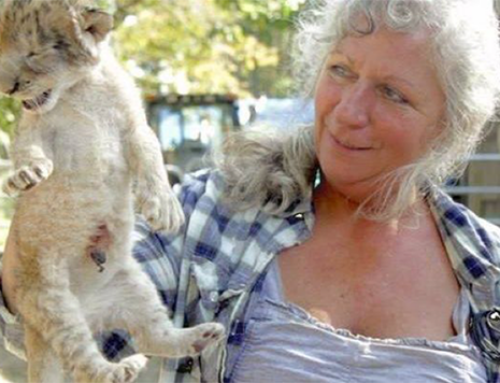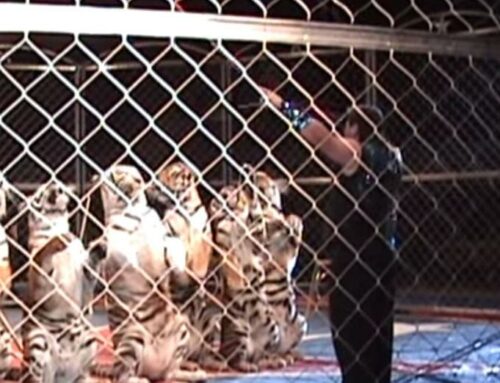ASHLAND — Even as Ohio lawmakers complete new rules for private ownership of exotic animals, Denise Flores, of Ashland, has moved forward with her plan to ship two more big cats out of the state.
Tiger Paw Exotic Rescue Center’s youngest remaining tigers, Nora and Katie, 10 and 7, respectively, will depart to Wildcat Haven in Sherwood, Ore., in May.
Flores, founder of the rescue center at 820 Ohio 511, eight miles north of Ashland, previously sent Nikita, a 7-year-old tiger, and Tasha, an 11-year old cougar, to new homes at The Wildcat Sanctuary in Minnesota. Her remaining cats are older: Sammie, 16; Delilah, 15; Ticha, 13; and Taz, 14.
The Ohio Senate passed a bill Wednesday banning new ownership of exotic animals. The vote was 30-1. The bill, which next goes to the House, will allow existing owners such as Flores to keep their animals if they obtain state-issued permits by 2014.
Flores began looking for new homes because she might not be able to afford the cats if Ohio requires difficult-to-obtain insurance and expensive microchip tracking.
The Ashland County resident said Wednesday she also has been worried about finding permanent places for her youngest animals before she reaches an age where she no longer can care for them.
Flores testified before the Senate committee April 17. She said Ohio exotic animal owners who have acted safely and responsibly should not be punished for what happened this past fall when Zanesville-area resident Terry Thompson released almost 60 animals before taking his own life.
“Pieces of paper with strict rules and regulations do not stop what occurred in Zanesville,” Flores told the committee. “These poor animals in Zanesville did not let themselves out of their cages — an irresponsible and mentally ill man did this.”
Flores told the committee owners of exotic animals should be required to register them at a reasonable rate, or no cost.
“As far as insurance is concerned, there is only one company in the United States that is known to write policies for exotic animals,” she testified. “Microchipping of these animals is being considered.
“What about the older animals? Anesthesia is dangerous for them … they may die while under anesthesia, just to be ‘tracked,’ which is not necessary.”
Flores estimated 300 to 400 private owners of exotic species exist across Ohio.
“If it weren’t for rescue centers and sanctuaries, some breeds would be extinct,” she said. “This proposal does not recognize the good that comes from rescue centers and sanctuaries for exotic animals.
“It is not unrealistic to think that in the near future, many species may only survive in captivity. There are simply not enough zoos or public funding to save them all unless we work together and make it possible for all.”
Flores asked legislators to support regulation, “but not as strict and unattainable” as originally suggested.
Most of the exotic creatures in Ohio have been with the same owners all or most of their lives, she said.
“No one even knows they exist because their owners are responsible and have no issues or chances of escape because the owners are so safety-conscious,” Flores said. “These exotics are not ‘pets’ and having them is not a ‘hobby.’
“It is a lifetime commitment that you will find most, if not all, owners take seriously.”
Flores told the committee she believed the new law should focus concern on care for the animals.
“We should be worrying about education, caging standards, safety protocols, escape prevention plans, etc., not the broad elimination of the taking of private animals,” she said.
http://www.coshoctontribune.com/article/20120426/NEWS01/204260308






Leave A Comment
You must be logged in to post a comment.